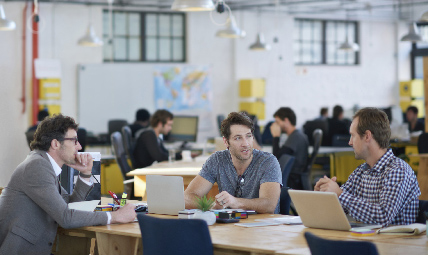Two Cambridge Enterprise portfolio companies were recognised in the third annual ACES awards, held in Zurich on 3 February and awarded by the Science|Business Innovation Board.
Sabine Bahn and Chris Lowe, co-founders of Psynova Neurotech received the Life Sciences Entrepreneurship Award, and Carlos Ludlow and Howard Chase of Enval Limited were recognised in the Materials/Chemistry Entrepreneurship category.
We are delighted that our current and former researchers have been recognised in this way. These awards are a credit to Sabine, Chris, Carlos and Howard, and to the quality and impact of their research.
Professor Nigel Slater
The ACES is a pan-European competition among companies spun out from universities to recognise the best academic entrepreneurs from across all technology disciplines. The competition is open to entrepreneurs in the European Union and countries affiliated with European Union’s 7th Framework Programme for research, including Israel and Russia. This year, the ACES drew nominations from Europe to Bashkorostan and culminated in an awards ceremony hosted by the ETH Zurich.
The Life Sciences Award was given to Sabine Bahn and Chris Lowe, co-founders of Psynova Neurotech Ltd, which was spun-out from the Department of Chemical Engineering and Biotechnology. The company is developing novel biomarkers that can help improve the diagnosis of psychiatric illnesses, and has built up a portfolio of 20 patent families.
Its first product, VeriPsych, is the first and only blood test to aid psychiatrists in the diagnosis of recent-onset schizophrenia. The number of individuals with schizophrenia and bipolar disorder is forecast to rise globally from 33 million in 2000 to 36 million in 2015. Psychiatric disorders are currently poorly and subjectively diagnosed, the judges noted, so the potential social impact of Psynova’s work is high.
In the Materials/Chemistry category, the prize went to Carlos Ludlow and Howard Chase of Enval Ltd, which was also spun-out from Chemical Engineering and Biotechnology. Enval’s technology closes the recycling loop for laminated packaging waste. The company is commercialising waste recycling and environmental technologies that can recover clean aluminium from packaging waste such as toothpaste tubes. The recovered aluminium can, in turn, be resmelted. Enval’s technology provides the first alternative to dumping such waste in landfill.
In Europe alone, Enval could treat an estimated 2 million tonnes of waste per annum which would otherwise be sent to landfill. The judges were impressed by Enval’s technology and large commercial potential.
“We are delighted that our current and former researchers have been recognised in this way,” said Professor Nigel Slater, Head of the Department of Chemical Engineering and Biotechnology. “These awards are a credit to Sabine, Chris, Carlos and Howard, and to the quality and impact of their research.”
The winners for these prestigious awards were chosen by a distinguished jury of European business and academic leaders, members and guests of the Science Business Innovation Board AISBL, a Belgian not-for-profit association created to improve the climate for innovation in Europe. Innovation Board members include officials of Microsoft, BP, Imperial College London, and business schools INSEAD in France and ESADE in Spain. This is the third year the awards have been granted.











